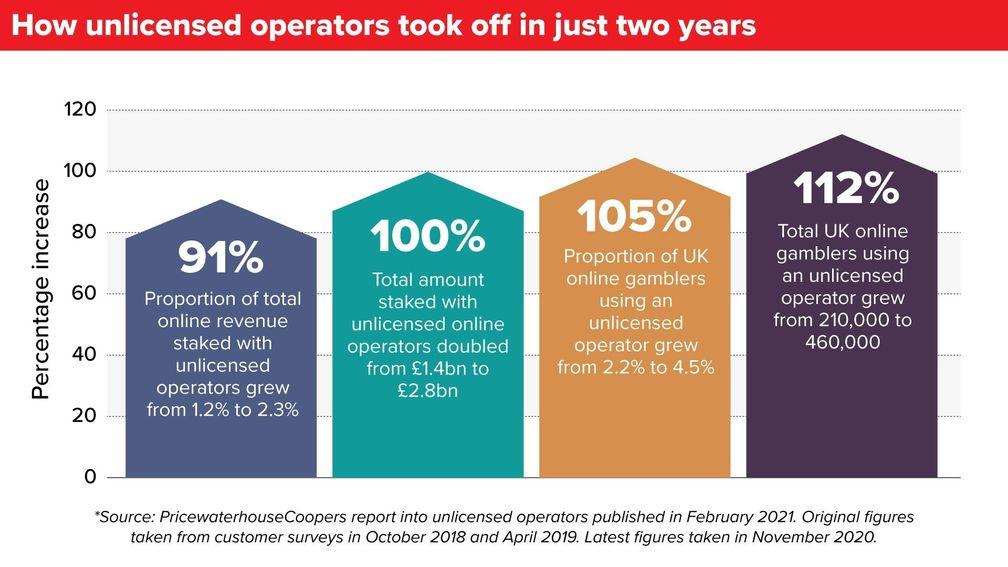'I'm very close to giving up' - the punters suffering from affordability checks
Bill Barber talks to people who enjoy a bet in part two of our three-part series

Lifelong punters and racing fans are walking away from the sport or turning to the black market in large numbers as they are increasingly hit by intrusive affordability checks that are creating an existential crisis for racing and betting.
According to numerous reader submissions and interviews carried out by this newspaper with bettors, those who gamble increasingly face a landscape involving financial checks that are more familiar to those applying for a mortgage than those enjoying a normal leisure pursuit.
One punter spoken to by the Racing Post said "the game is up for me now", while another said he felt it was "pointless" carrying on in the face of the checks.
Affordability checks, which involve customers being asked for proof of income such as bank statements, tax returns and P60s, have been extensively introduced long before the government has set out its proposals on affordability in its continually delayed white paper, let alone come to a final decision. For many, they are simply a violation of civil liberties and should not be applied to an individual's discretionary spend.
The UK's betting regulator, the Gambling Commission, claims it has not asked operators to make such interventions. But operators have effectively been forced to carry out heavy-handed checks due to a lack of clarity from the regulator, taking the precautionary principle for fear of a hefty financial punishment. Despite huge controversy around affordability checks, the regulator has mandated them in their most intrusive form.
The upshot is that bettors who have pursued their pastime for decades are now unable to carry on as they wish unless they provide personal financial information, something the Betting and Gaming Council (BGC) has claimed seven out of ten would refuse to do. One operator has put the figure at more than nine out of ten from their experience.
The impact on racing, whose income from betting via the levy and media rights was estimated at £262 million a year in 2019, from these haphazardly applied affordability checks could be devastating. The stakes could not be higher for the betting and racing industries.
The Racing Post asked readers to contact the newspaper with their experiences of affordability checks and the evidence from the many bettors who responded has to be of serious concern for the sport.
Mike Langdon, who describes himself as a recreational punter with a full-time job who mainly bets on horses and sometimes football, is one who is considering walking away.
Langdon told the Racing Post: "I've been a punter for 30-odd years. Normal bookmakers have restricted me all the time, some bookmakers I would open an account with them and be restricted after one or two bets.
"I have been with Betfair since 2005. They sent me an email saying they were giving me a £300 deposit limit a month and I can't appeal it."
Langdon said that friends of his had been able to deposit much larger amounts without a problem, while others had also been subject to checks from other firms.
He added: "It makes no sense at all and there's no legislation about these checks because the government white paper has not been published."
Langdon was told that if he was to provide three months of bank statements and a P60 the limit could be increased.
However, he added: "I'm not going to do that. I could go to Wetherspoons today and have ten pints and 40 fags which would kill me, but nobody's checking me out."

Langdon is not alone in his experience with Betfair. Ray Fenn said he had been a customer of the exchange for more than 15 years, using it "recreationally".
"In recent days I have been told I can only deposit a max of £300 a month," he said.
Fenn said he would have trouble raising that limit without proof of income. He said he only worked part-time, but added: "I trade shares for a living mainly and make good money each and every year.
"What on earth are Betfair playing at? Is there anything I can do about it?"
Mike, who did not want to give his full name and who said he was now in his 70s and had been betting since he was 18 on horses, greyhounds and football, could not be called a recreational bettor.
He described himself as a serious punter who had annual turnover of more than one million pounds a year before affordability checks became commonplace.
"Now it has fallen substantially because I only have three accounts now and two of them are limited to how much you can lose in a month," he said.
"It boils down to asking for proof of funds and mainly asking for bank statements which I will not give to anybody. I wouldn't give my brother my bank statements!"
Mike said accounts with Betfair and William Hill had both been closed due to his unwillingness to give them information. Coral then contacted him.
"They said to me out of the blue we've put you on a losing limit of about £2,000 a month," he said. "I contacted them and they sent me an email saying if you want to increase your limit you need to give us some information about income and whatnot.
"I told them I had assets of over a million pounds. They came back to me and said your assets are of no use, it's your income. We are not interested in your savings or anything else, we are only interested in your income.
"I gave them my income and they emailed me back to say we've reduced your losing maximum to £1,050 a month which is still in force now."
Bet365 also contacted Mike asking him to provide financial information, and the result was an illustration of the inconsistency in approach between operators.
"Coral and bet365 were given exactly the same information, one comes back with a limit of £1,050 you can lose each month and the other comes back and says you can lose £3,000 a month. Obviously they don't work off the same algorithms."
Mike was not the only punter contacted by the Racing Post who found themselves restricted despite having provided information proving they had the necessary funds to bet.
A retired businessman, who did not wish to be named, said they had had their credit account closed and a net deposit limit of £300 imposed on them by one operator, despite having provided proof of income through their bank statements.

Neil Channing, a widely known professional punter, speaks for many bettors in decrying the inability to appeal an operator's decision, and points the finger at a lack of clarity from the Gambling Commission.
"Right now you have the situation where some companies will say you can deposit £400 a month and some will say no, it's only £100 a month," Channing said.
"Who decides that? Some guy at the company, and the guy at the company will say my job's impossible because the Gambling Commission don't really tell us how to work out that number, they just kind of leave it to us and then we get fined if we do it wrong.
"Obviously they don't really get fined for the cases where it is £100 or £400, the fines are from the ridiculous cases where people have lost multiple thousands."
Channing added: "From a customer point of view you can deposit x amount, another firm you're allowed to do much less. Some ask you for a ridiculous amount of information, some for none.
"From the punter's point of view, punters can't contact them [the Gambling Commission], there is no arbiter on any of this.
"Right now if you have an account with one firm and they want this, this, this and this information, and you can only deposit whatever, you've got no recourse, you can't appeal that.
"There's no-one to look at your case. It's a faceless person at the company making that decision. It's very unsatisfactory for punters."
Channing has some sympathy for those applying affordability checks to their customers in the face of vagueness from the Gambling Commission.
He added: "If you speak to anybody who works for any of the firms in compliance they will tell you that they are just given very vague outlines of what they are supposed to do.
"Clearly they know they are not supposed to take a hundred grand a year from someone who earns 20 grand working for the NHS – that used to happen and they don't do that anymore. But in between there are grey areas."
Channing believes the government needs to stick to its word about carrying out evidence-based reviews to bring in policy.
"I concede that if you stop a high-staking problem gambler you stop more damage than if you stop a low-staking problem gambler," Channing said. "But, and it's a big but, this whole thing assumes that people who bet bigger are more likely to be problem gamblers.
"There is no evidence to suggest this, but basically we are going to end up in a situation where all punters who bet more than average are going to be massively inconvenienced plus the racing and betting industries hugely damaged – they already have been – based on a premise that has zero evidence to back it up."
Affordability checks are arguably a disproportionate response to a problem that affects only a tiny number of bettors. The rate of problem gambling according to BGC figures is 0.3 per cent having been 0.4 per cent in the year to March 2021.
Meanwhile, and in tandem with the growth of affordability checks, the unregulated black market has become more appealing to bettors.
Last year the BGC published figures from a report compiled by PwC that claimed the number of customers using an unlicensed betting website has grown to 460,000 from 210,000 over two years, while the money staked with unlicensed operators – money lost to the betting and racing ecosystem – had doubled to £2.8bn.

One punter emailed the Racing Post to say he had been placing back and lay bets for five weeks with a black market facility, which had led to further offers from 12 other bookmakers. He said he had been "greatly impressed" by the service, and said in his experience punters did not care about the white paper given the "alternatives springing up all the time".
Langdon said he knew of punters who were using the black market, adding: "I've had friends who have given me links to black market websites. They are not regulated at all. Whether you get your money back or not I don't know. I don't think I would go down that route.
"Saying that, there are some Gambling Commission-registered websites that have gone pop recently where people have lost money and they are regulated. Is it any worse? I just don't know."
Channing certainly believes that affordability checks are driving some punters to unlicensed operators, a process already started by those who have had their accounts restricted for other reasons.
He said: "I know for sure that lots of people in my lifetime have been pushed to the black market because of restrictions, but those people are generally a small percentage of punters, much bigger punters.
"Anecdotally I feel like in the last year it is way smaller punters who are being driven to the black market because of affordability stuff. This World Cup dozens of people I know, betting two hundred quids at 10-11 and stuff, are just doing it by Whatsapp and doing it illegally. That's because if you are someone who does singles it doesn't lend itself very well to the affordability stuff."
Equally worryingly, affordability checks may well persuade punters to give up altogether, dealing not only bookmakers but racing itself a devastating blow.
Mike said: "To cut a long story short, it's really annoyed me over the last six months because I am just thinking it's pointless now I am not enjoying it any more so why bother with it?
"I am more than thinking about giving up – I am getting very close to it.
"I might have a thousand pound bet. Well, if my limit is £1,050, that could limit me to 12 bets with them if they lost. What enjoyment do I get out of that, waiting a month to have another bet?"
Fenn and Langdon both told the Racing Post they were having similar thoughts.
Fenn said: "I can't back horses with traditional online bookies as all my accounts are restricted to max stakes of a few pence.
"The game is up for me now and for many others I talk to every day. After numerous years gambling I have now given up due to intrusive affordability checks and restrictions of stakes online."
Langdon said he had not had a bet "for three or four weeks".
"It's ridiculous," he added. "I can't put a bet on. I've got to drive to my nearest betting shop and it's a hassle.
"For people like me it's finished. I don't understand it. There's no legislation [yet] and it's like they are victimising punters."
'Tailored approach is correct path'
Flutter Entertainment, the parent company of Betfair as well as Paddy Power and Sky Bet, said a tailored approach to affordability checks was the correct path for both the government and bookmakers.
When approached by the Racing Post for comment on the experiences related by the punters who have undergone affordability checks, a spokesperson for the company said Flutter was "keenly" awaiting publication of the gambling review white paper.
They added: "As part of this, it is critical that the government and our industry gets the area of affordability right, with a tailored approach that seeks to protect those at-risk while allowing millions of other customers to bet safely."
In 2021 the gambling industry giant was one of the first operators to put its own checks in place through what it described as the "Affordability Triple Step".
The spokesperson added: "We believe that assessing risk and applying controls at an individual account level has far more impact than blanket restrictions. Furthermore, 86 per cent of our customers think it is appropriate that they set their own limits.
"We are proud of the role Flutter has played in driving a race to the top in safer gambling whereby we have led the industry on progressive and proactive change.
"Over the past two years, we have directly invested over £60m to support, promote and educate safer play across our UK and Irish division, and introduced several proactive measures, including the Affordability Triple Step, net deposit limits for customers under the age of 25, and a £10 stake limit on online slot products. We will continue to lead from the front."
Both Entain, parent company of Coral and Ladbrokes, and bet365 were contacted for comment.
Read more from this series:
Part one: an existential threat - how did affordability checks become such a big issue?
Part three: The £40 million blow - how affordability checks are already hitting horseracing

The Front Runner is our latest email newsletter available exclusively to Members' Club Ultimate subscribers. Chris Cook, a four-time Racing Reporter of the Year award winner, provides his take on the day's biggest stories and tips for the upcoming racing every morning from Monday to Friday. Not a Members' Club Ultimate subscriber? Click here to join today and also receive our Ultimate Daily emails plus our full range of fantastic website and newspaper content
Published on 14 December 2022inSeries
Last updated 11:43, 16 December 2022
- We believed Dancing Brave could fly - and then he took off to prove it
- 'Don't wind up bookmakers - you might feel clever but your accounts won't last'
- 'There wouldn't be a day I don't think about those boys and their families'
- 'You want a bit of noise, a bit of life - and you have to be fair to punters'
- 'I take flak and it frustrates me - but I'm not going to wreck another horse'
- We believed Dancing Brave could fly - and then he took off to prove it
- 'Don't wind up bookmakers - you might feel clever but your accounts won't last'
- 'There wouldn't be a day I don't think about those boys and their families'
- 'You want a bit of noise, a bit of life - and you have to be fair to punters'
- 'I take flak and it frustrates me - but I'm not going to wreck another horse'